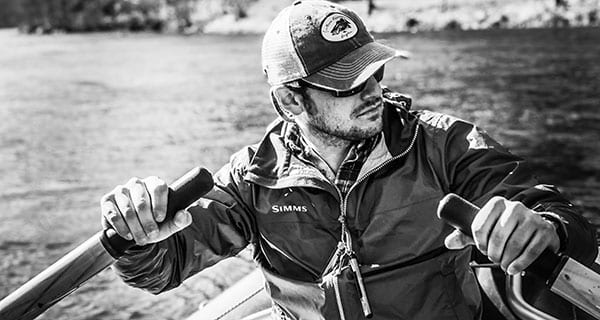The fishing community is a strange one in that it is about as agreeable, and yet as argumentative, as a group of people can possibly be. Every angler on Instagram or YouTube anymore is an expert on EVERYTHING, or completely clueless, or even sometimes both. It’s as easy to become an internet fishing celebrity these days simply by having a Go-Pro, access to a private pond, and the knack for coming up with click-bait titles to lure teenagers into watching your videos.
My point being, that anyone has the ability to share information on fishing, to an audience of potentially millions of people, regardless of whether you’re an expert or a novice on one of the many arts of fishing.
I say this not to criticize; I’ve ranted enough on the negative affects that social media has had on our sport. There’s a ton of fantastic information that is being shared by some incredibly talented anglers and guides, some of which has proven invaluable to me in my own learning. I can’t help but ponder, however, on the missed opportunities that I think the angling community has failed to capitalize on when it comes to using all of this exposure to promote good conservation ethics.
Think about it, when’s the last time you watched a video on YouTube or Instagram from a famous angler about how to hold a trout correctly without killing it? Or one on live-staking to prevent erosion in a river? How many times have you seen someone live-stream themselves picking up trash rather than just fishing?
I think that this sets off a somewhat dangerous precedent, especially to the next generation of anglers. Conservation practices have turned from, at least in my experience, more of an afterthought than an important part of fishing education. I fervently believe that a basic understanding of the necessity of clean water, or good catch-and-release measures, are just as much a fundamental skill as knot tying or fly casting.
I’m worried that the younger generations of anglers are going to be more concerned about how many big fish they can throw up on their YouTube or Instagram channels to gain followers, rather than promoting the sport as a pathway to others to learn about proper conservation techniques. I also believe that guides and people with large-scale social media followings currently have the best opportunity in recent history to make an outstanding impact on wildlife and fisheries conservation for the future. You can never assume that people already know how to handle a fish without killing it. I’ve found from guiding that the majority of people are completely ignorant to those practices especially.
This is why those of us with the ability, and the platform, should make every effort to ensure the future of our waterways by taking the opportunity to educate others on not just how to fish, but also how to protect our fragile aquatic ecosystems for decades to come. Fishing is more than just something to do for fun; it’s an extension of the greater necessity of conservation as a lifestyle that we all need to live out if we want our waterways to be productive and healthy for generations.
Ethan Hollifield is a member of a conservation organization called 2% For Conservation and a guide for Southern Appalachian Anglers.
